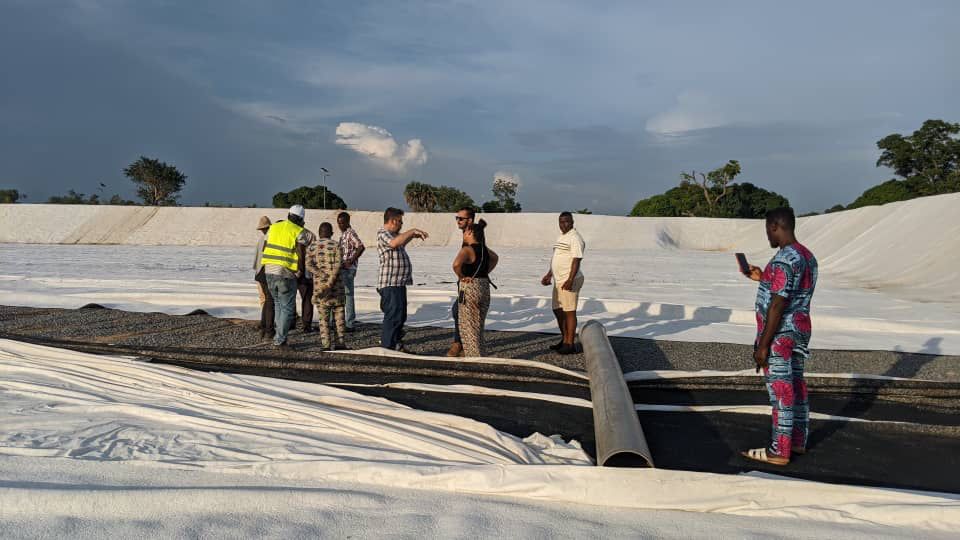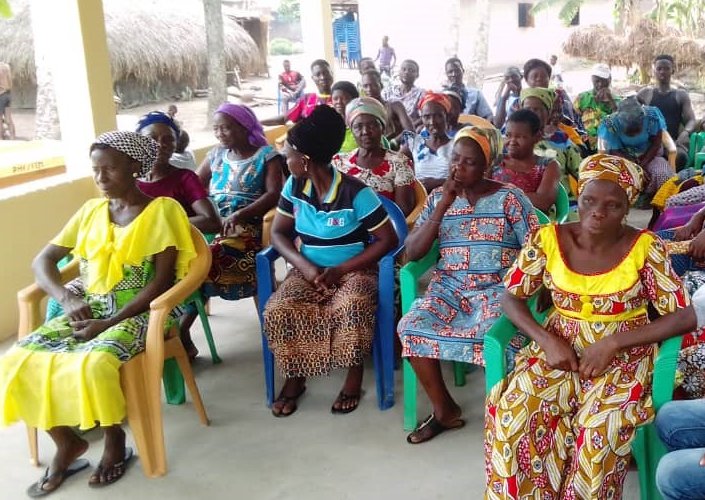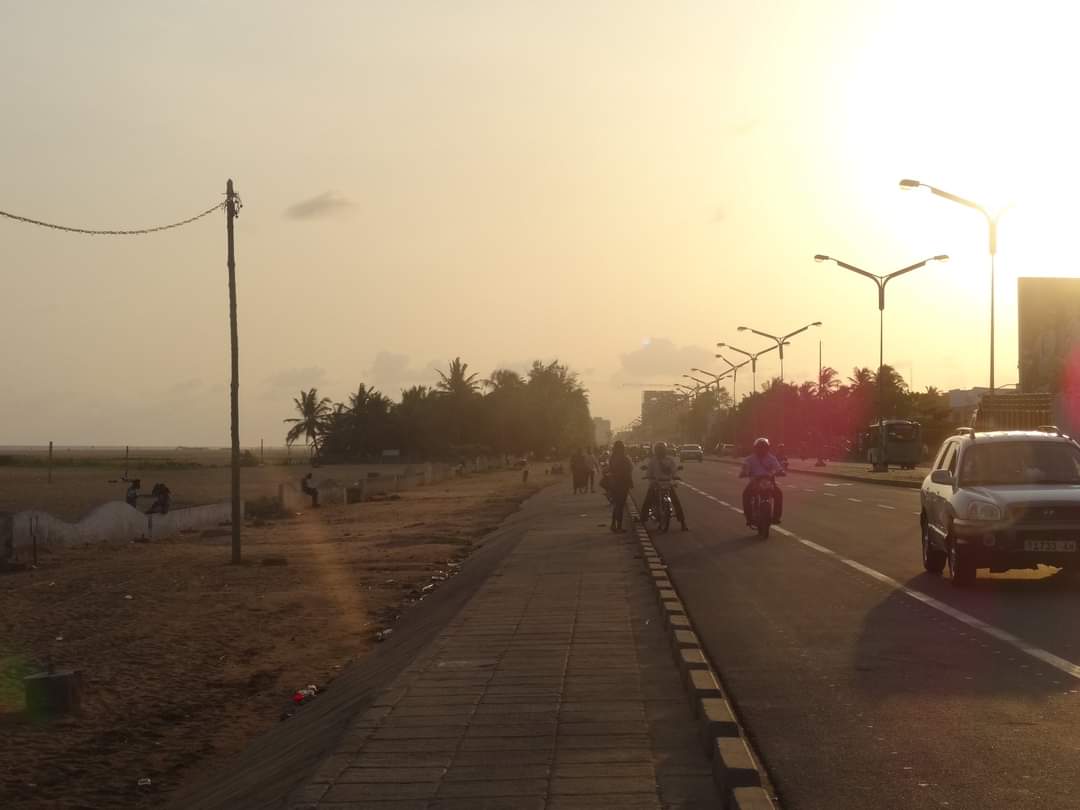In 2019, GRET took over NGO Gevalor’s activities and is now conducting the Africompost 2 project in Lomé. This second phase of the project intends to support and strengthen Togolese NGO ENPRO, a recovery operator and partner of GRET, to improve waste management in Lomé.
The first phase of the Africompost project aimed to support the emergence of waste recovery operators in several African countries. Also funded by Agence française de développement (AFD), Syctom in Paris and Fondation Suez, the second phase in Lomé is continuing to pursue this objective, this time taking a co-constructed territorial approach. The primary goal of the project is to make ENPRO sustainable by technically strengthening its economic model and facilitating its integration into the institutional fabric. The project has a second dimension focusing on the 5th district of the commune of Lomé, where it will conduct pilot actions enabling improvement of waste management by working on the various segments of the chain.
Innovative and complementary pilot actions
To reach and mobilise as many families as possible, awareness-raising actions were conducted taking a participative approach, in particular with the organisation of neighbourhood meetings making it possible to co-construct awareness-raising methods planned with civil society. The actions were implemented, enabling testing of innovative methods at community level, mobilising inhabitants and local stakeholders, and making it possible to improve sanitation in neighbours by eradicating uncontrolled dumps. Awareness-raising via radio shows and public signage helped to reach a wide audience, while the younger generation was reached through talks at schools and football tournaments.
A framework for consultation was set up and facilitated by GRET, enabling waste sector stakeholders from the 5th district of the commune Lomé to meet every three months. This created a forum for discussion and strengthened democratic dialogue between all parties, contributing to dissemination of knowledge acquired and to decision-making. It is within this framework that joint diagnoses serving as a base for action were conducted, and the strategy to eradicate uncontrolled dumping was developed.
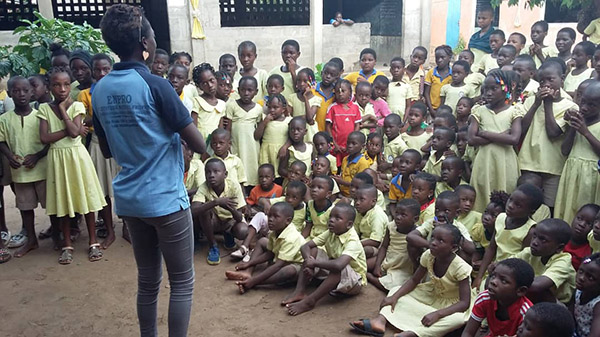
Lastly, a pilot action to reduce sand in household waste was carried out among households, as sand accounts for 35 % on average of the overall weight of waste collected in Lomé. Reducing sand is a significant challenge in terms of public health and lower collection and landfilling costs for the commune. By supporting families for one year the objective was to develop a methodology that would be appropriated by ENPRO and the commune, as well as being replicable on a larger scale or in another region.
Key figures
- Awareness-raising actions reached more than 50 % of inhabitants in the 3 neighbourhoods targeted, i.e. more than 42,000 people.
- In the 9 concessions participating in the pilot operation, the proportion of sand in household waste decreased from 32 % to 17 %, i.e. a reduction of 48 % in one year.
- 11 consultation meetings were co-facilitated by GRET and a staff member from Lomé’s technical services.
Waste recovery via composting and its impacts
ENPRO made the most of GRET’s support and today has full knowledge of the compost production process and the commercial dimension of its activity. In 2019, ENPRO treated 4,000 tons of household waste and produced 300 tons of compost. ENPRO’s recovery via composting activity generates positives impacts at various levels: economic primarily, by reducing collection and landfilling costs for the commune, which amounted to 180 million CFA francs (275,000 €) from 2013 to 2020; environmental, by decreasing greenhouse gas emissions and returning carbon to the soil; technical, by increasing the lifespan of the Technical landfill; and social, in particular with the creation of jobs for women and the most vulnerable populations.
In terms of the economic model, as production and sales of compost from household waste does not generate sufficient profits, ENPRO is not covering the totality of its operating costs. To make its economic model more balanced, with support from GRET, ENPRO developed a service providing support and advice on waste collection and recovery to public and private stakeholders in West Africa. The NGO is also implementing other strategies to increase and diversify its sources of income: provision of support to Togolese communes, development of new forms of waste recovery and expansion of its services offer, with support for selective waste sorting. Although ENPRO is technically recognised by the commune of Lomé, the issue of payment for the recovery service provided, which had been raised during the first phase of the project and which is fundamental to attain financial stability, was not possible to discuss due to the administrative reorganisation of the territory.
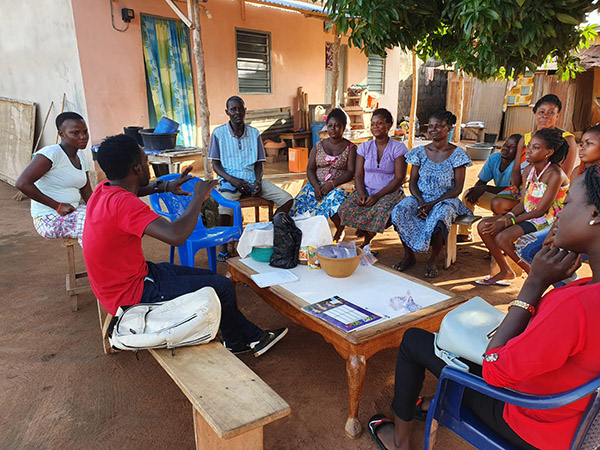
The participative and territorial dimension of the project was broadly successful among stakeholders and its pertinence was demonstrated in the results achieved. Although it takes time and several project cycles for a recovery operator to become sustainable, today ENPRO is recognised for its expertise at national and sub-regional level. The relation between ENPRO and GRET is developing from a classic support model to a mixed model and both organisations today propose their joint expertise to African stakeholders in the waste management sector.
A third and last phase of the Africompost project focusing on ENPRO becoming autonomous, is currently being designed. It should enable the opening of a new composting platform, development of new forms of recovery, improvement of ENPRO’s integration in the agricultural sector and strengthening of its support-advice role as a waste collection and recovery operator.



